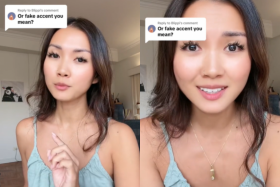Prof: 'Social media brings out the best and worst in people'
Professor Tan Cheng Han, the chairman of the Media Literacy Council (MLC), which aims to encourage users to take greater responsibility online, weighs in on the issue of voyeurism.
"With more devices incorporating camera and recording capabilities, it’s become a lot easier for people to capture anything they want or which they witness, without thinking deeper of how they might be invading the privacy of others.
"There are many possible reasons an individual would take and upload photos and videos of people and situations, particularly when those photos can cause embarrassment or a breach of privacy to others.
"Are they trying to shame others for what they perceive as “wrong behaviour”?
"Or are they trying to draw attention to themselves or is this really a cry for help?
"In the case of the upskirt videos, the men taking those pictures may have underlying psychological and mental health conditions that they should get medical care for.
"If there are websites encouraging this particular behaviour to post upskirt videos, which is illegal and morally wrong, then that’s where the Internet Code of Practice kicks in.
"Fundamentally, the nature of the Internet and social media is such that it brings out the best and worst in human nature.
"Both positive and negative behaviours are amplified online.
"People need to understand that there are consequences to negative behaviour.
"If an action breaches the law, there are legal ramifications to deal with.
"If the act is anti-social and morally dubious, there are social and emotional consequences for the perpetrator and victim.
"As responsible digital citizens, we all can take a stand against negative online conduct.
"Instead of liking and sharing pages and websites that upload unsavoury videos/image of others or which have dubious content, we can register our objection to such content.
"On social networking sites and forums, we can report abuse or flag inappropriate content to the site administrators; we can make it clear that it is not acceptable for such videos/photos and content to be circulated.
"On websites which encourage such content, we can report them to the relevant authorities, and make an informed choice to avoid visiting such sites."
Read the full report on online voyeurism in our print edition on July 9.
Subscribe to The New Paper, now available in print and digital, at http://bit.ly/tnpesop.
Get The New Paper on your phone with the free TNP app. Download from the Apple App Store or Google Play Store now


